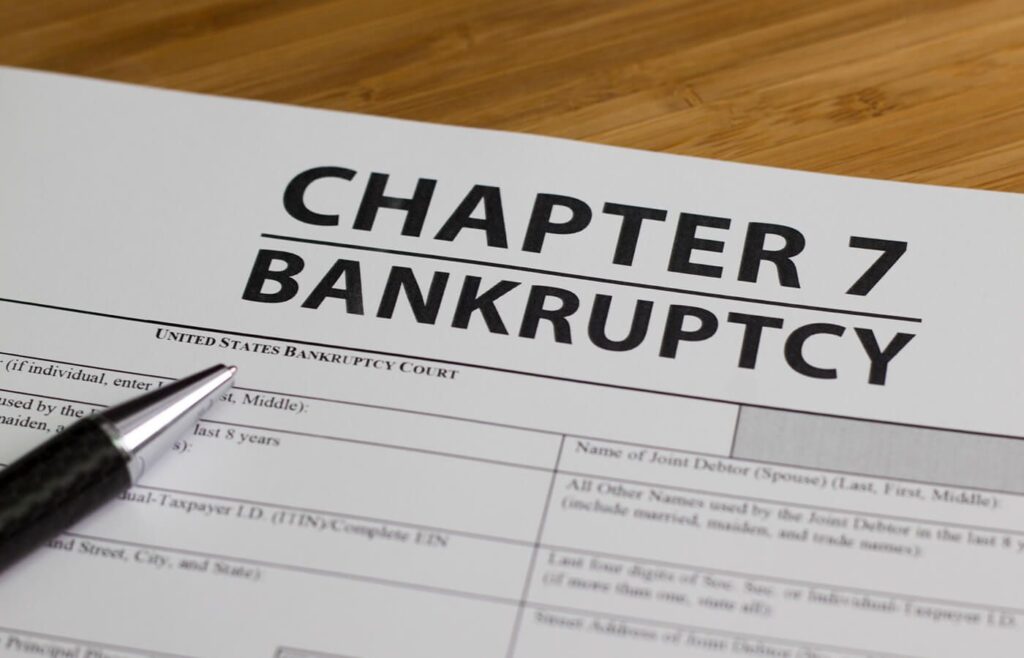Introduction
Bankruptcy is a legal process that allows individuals and businesses to eliminate or repay their debts under the protection of the federal bankruptcy court. There are two main types of consumer bankruptcy: Chapter 7 and Chapter 13. Both types of bankruptcy can provide relief from debt, but they have different eligibility requirements and different effects on your credit. This article will explain the differences between Chapter 7 bankruptcy in Omaha and Lincoln, and Chapter 13 bankruptcy in Omaha and Lincoln, and how they can help you get out of debt.
Exploring the Differences Between Omaha and Lincoln Chapter 7 + Omaha and Lincoln Chapter 13 Bankruptcy
When it comes to filing for bankruptcy in Omaha, Nebraska or filing bankruptcy in Lincoln, Nebraska, individuals have two main options: Chapter 7 and Chapter 13. While both types of bankruptcy can provide relief from overwhelming debt, there are some key differences between the two that should be considered before making a decision.
Chapter 7 bankruptcy is the most common type of bankruptcy and is often referred to as a “liquidation” bankruptcy. This type of bankruptcy allows individuals to discharge most of their unsecured debts, such as credit card debt and medical bills. In order to qualify for Chapter 7 bankruptcy, individuals must pass a means test, which determines whether or not they have enough disposable income to pay back their creditors. If they do not pass the means test, they may be required to file for Chapter 13 bankruptcy instead.
Chapter 13 bankruptcy is often referred to as a “reorganization” bankruptcy. This type of bankruptcy allows individuals to keep their assets while they pay back their creditors over a period of three to five years. During this time, individuals must make regular payments to a court-appointed trustee, who then distributes the payments to creditors. Unlike Chapter 7 bankruptcy, individuals do not have to pass a means test in order to qualify for Chapter 13 bankruptcy.
When it comes to filing for bankruptcy in Omaha, Nebraska and bankruptcy in Lincoln, Nebraska, individuals should carefully consider the differences between Chapter 7 and Chapter 13 bankruptcy before making a decision. Chapter 7 bankruptcy is best for those in Nebraska who have little to no disposable income and are unable to pay back their creditors. Chapter 13 bankruptcy is best for those in Nebraska who have some disposable income and are able to make regular payments to their creditors over a period of time.
How Nebraska Debt Relief Can Be Achieved Through Chapter 7 and Chapter 13 Bankruptcy
When considering filing for bankruptcy, it is important to understand the differences between Chapter 7 and Chapter 13 bankruptcy. Nebraska Debt Relief can be achieved through one of these methods.
As mentioned above, Chapter 7 bankruptcy is a liquidation bankruptcy, which means that all of your non-exempt assets are sold to pay off your creditors. This type of bankruptcy is best for those who have few assets and a large amount of unsecured debt. It is also the quickest type of bankruptcy, with most cases being completed within four to six months.
Also as mentioned above, Chapter 13 bankruptcy is a reorganization bankruptcy, which allows you to keep your assets while paying off your creditors over a three to five year period. This type of bankruptcy is best for those who have a steady income and are able to make regular payments. It is also beneficial for those who have assets that they would like to keep, such as a home or car.
Nebraska Debt Relief can be achieve through one of those two methods of bankruptcy, and Skrupa Law Office is here to help you navigate either scenario with the most professional and experienced bankruptcy support in Omaha and Lincoln, Nebraska. Our experienced team of Nebraska bankruptcy attorneys can review your financial situation and provide you with the information you need to make an informed decision. We can also provide you with guidance on how to best manage your debt in Nebraska and rebuild your credit after filing for bankruptcy in Nebraska. With our help, you can make the best decision for your financial future.
What You Need to Know About Lincoln Chapter 7 and Chapter 13 Bankruptcy
When it comes to filing for bankruptcy in Lincoln, Nebraska or Omaha, Nebraska, individuals have two main options: Chapter 7 and Chapter 13. Both of these forms of Nebraska bankruptcy provide debt relief, but they have different eligibility requirements and different effects on debtors. It is important to understand the differences between the two in order to make an informed decision about which type of bankruptcy is right for you.
Both Chapter 7 and Chapter 13 bankruptcy have their advantages and disadvantages. Chapter 7 bankruptcy can provide debtors with a fresh start by eliminating most of their unsecured debts, but it can also have a negative impact on their credit score. Chapter 13 bankruptcy can help debtors keep their assets while they pay off their debts, but it can also be more expensive and take longer to complete.
Ultimately, the decision of which type of bankruptcy to file for should be based on the individual’s financial situation and goals. Skrupa Law Office can help Nebraska residents determine what type of debt relief in Omaha and Lincoln is best for them. It is important to speak with a qualified bankruptcy attorney like Frank Skrupa in Lincoln and Omaha to discuss your options and determine which type of Nebraska bankruptcy is right for you.



